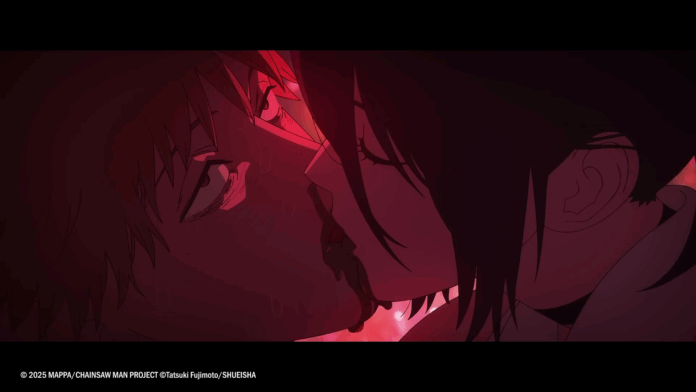The long-awaited cinematic return of MAPPA’s notorious blood-spattered underdog has finally arrived and it’s not just a continuation, it’s a thesis statement. Chainsaw Man – The Movie: Reze Arc doesn’t merely extend the story that began in 2022; it reframes it. It clarifies what the series has always been underneath its spectacular carnage: a raw coming-of-age tale about a boy who is still learning what love, longing, and selfhood even mean. This film is breathtaking not because it reinvents Chainsaw Man’s identity, but because it deepens it.
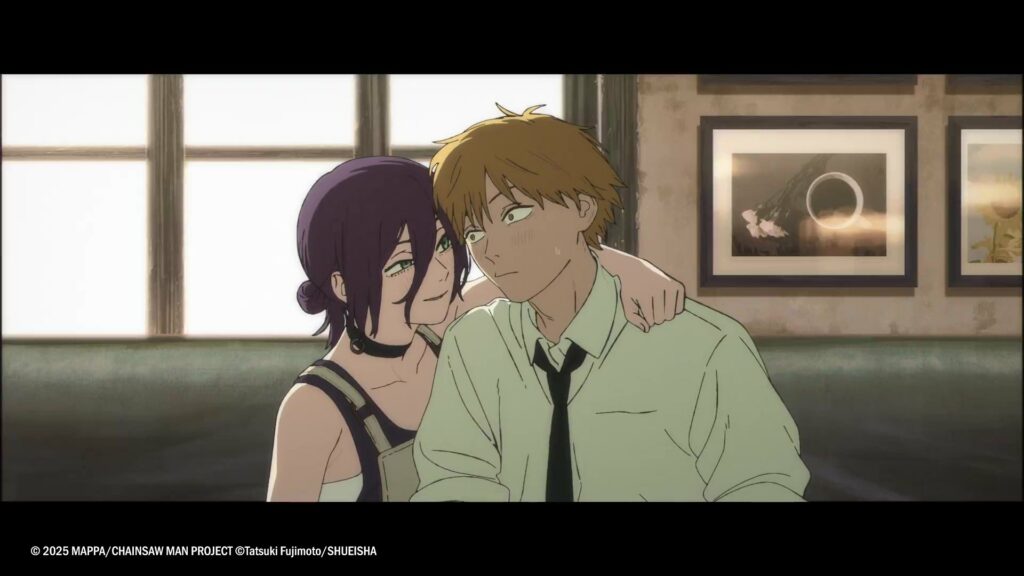
The most surprising element of Yoshihara’s direction is not the hyperkinetic violence the franchise is known for it’s the restraint. The movie understands when to be quiet. There are moments when the camera lingers, letting the everyday heartbeat of Denji’s strange adolescence play out with warmth, humor, and startling tragedy woven just beneath the surface. The narrative never forgets that Denji is, first and foremost, a teenager who never had the luxury of innocence. The emotional beats are neither sentimental nor manipulative, instead carried by a raw authenticity rarely captured in shōnen-adjacent adaptations.
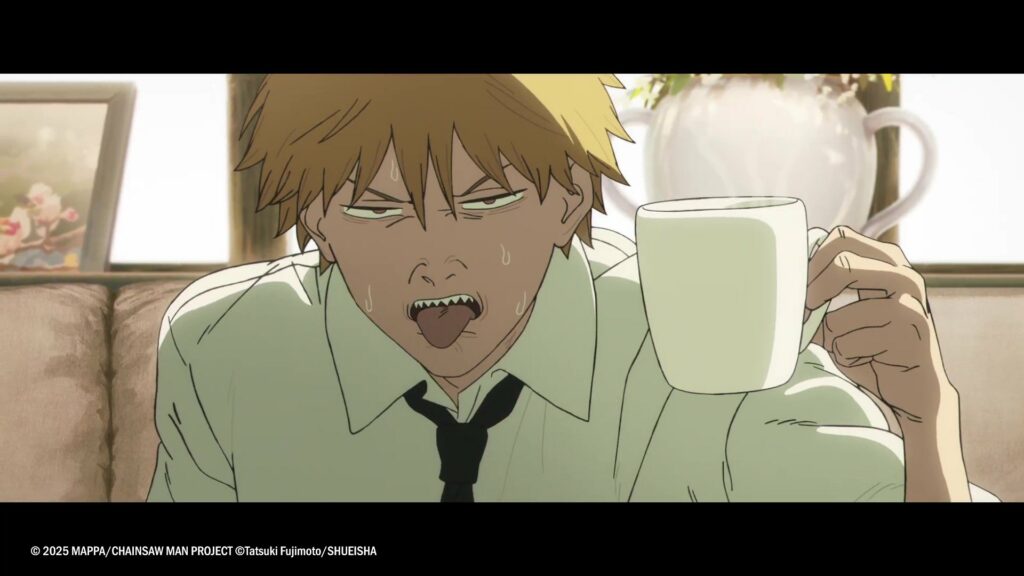
What makes this arc so compelling is how effortlessly it expands on the recurring tension of Chainsaw Man’s world: love as something perilous and ambiguous. The film leans into duality, intimacy and danger, longing and betrayal without ever oversimplifying them. The relationship at its center is not treated as a typical anime pairing, but rather as an exploration of connection and vulnerability within a reality where trust is a gamble and tenderness is often weaponized. It asks the question silently, again and again: Is it possible for something monstrous to still want something human?
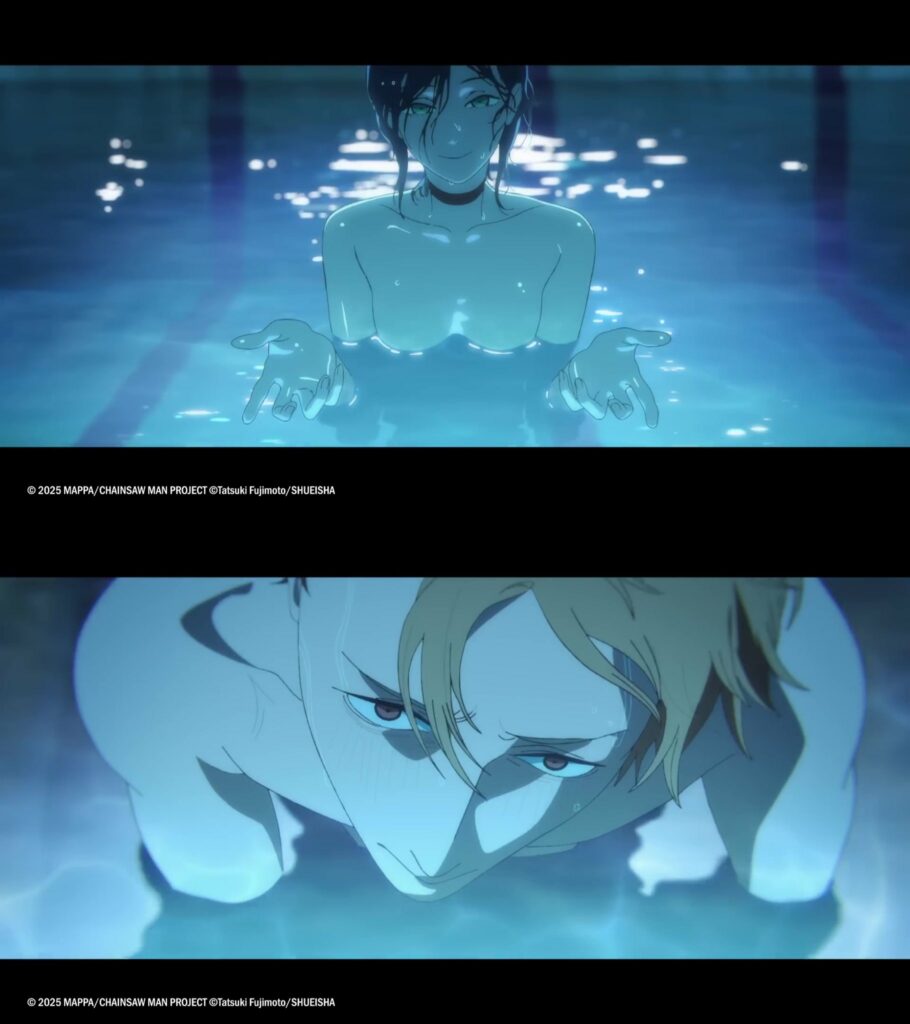
MAPPA’s technical skill was already undeniable in the first season, but this film elevates it to another register. There’s a sculpted intensity in how the action sequences are staged — wide cinematic framing followed by brutal, whip-fast close combat that places you inside the momentum instead of simply observing it. No movement feels wasted or cosmetic. Denji doesn’t just fight; he collides with the world around him in a way that makes the violence feel visceral, almost gravitational.
Yet what might be more impressive than the choreography is the tenderness with which the animators handle stillness. There are scenes where the animation seems to breathe, wind touching fabric, water reflecting emotion without a word exchanged. The tonal shifts never feel abrupt because the visual language ties the brutality and softness into a singular mood. Even the color palette feels like part of the storytelling: bright saturation in naive joy, deep gradients in quiet dread.
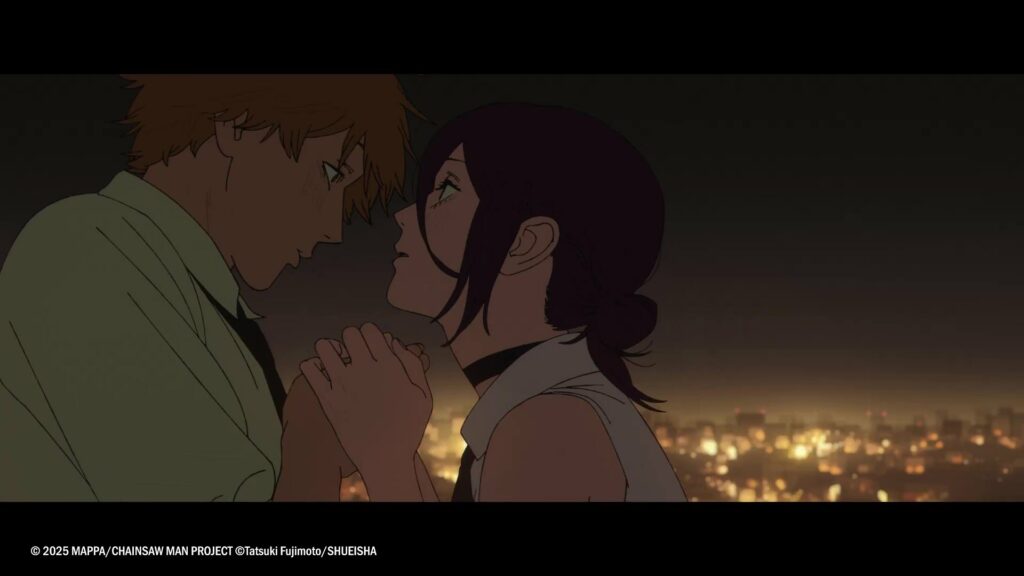
Chainsaw Man has always had humor, but here it feels more refined, more organic. The jokes aren’t just punchlines, they are shields, coping mechanisms, reminders that Denji is still a boy who has to laugh to survive. The absurdity of teenage yearning, the clumsy flirtation, the casual stupidity, it lands because it’s real, not because it’s quirky. The comedy does not undercut the emotional core; it fortifies it. When the darker implications arrive later, the levity retroactively feels like innocence slipping between fingers.
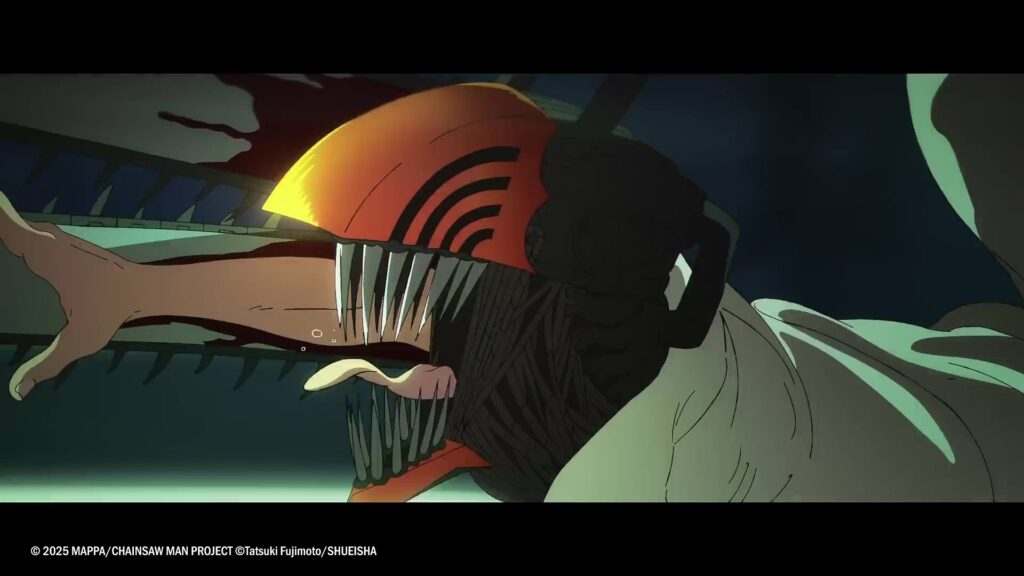
Perhaps the most notable narrative achievement of the film is how it frames love not as salvation, but as possibility, dangerous, complicated possibility. The bond explored throughout the film exists in an atmosphere of fragile hope. Whether or not it can bloom doesn’t matter as much as the fact that Denji finally wants something beyond survival. That is the maturation of this character: not strength, not combat proficiency, desire.
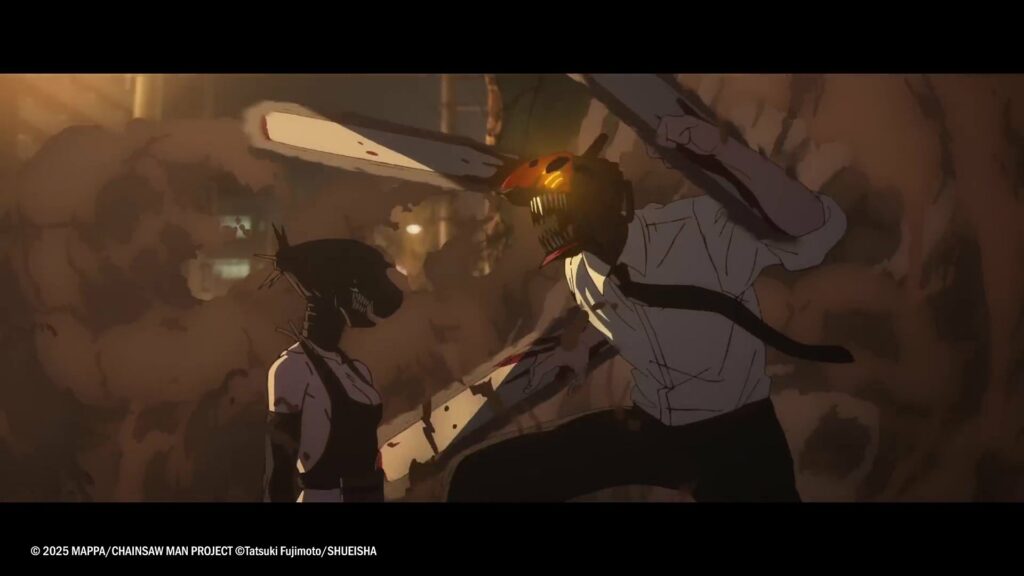
One of the best recurring motifs, without giving away details, is the symbolic presence of mice. The film uses them not as metaphorical garnish, but as emotional architecture: tiny creatures surviving by slipping through the cracks of a world built to crush them. It’s quiet but profoundly thematic, tenderness hiding in sharp corners. The film trusts you to notice.
This movie isn’t made for the uninitiated, and it does not pretend to be. Instead, it is unapologetically a reward for those who have followed Denji’s journey thus far. It feels like MAPPA’s answer to the lingering cultural conversation around Season 1: yes, Chainsaw Man has style, but it also has something to say, and this arc says it fluently.
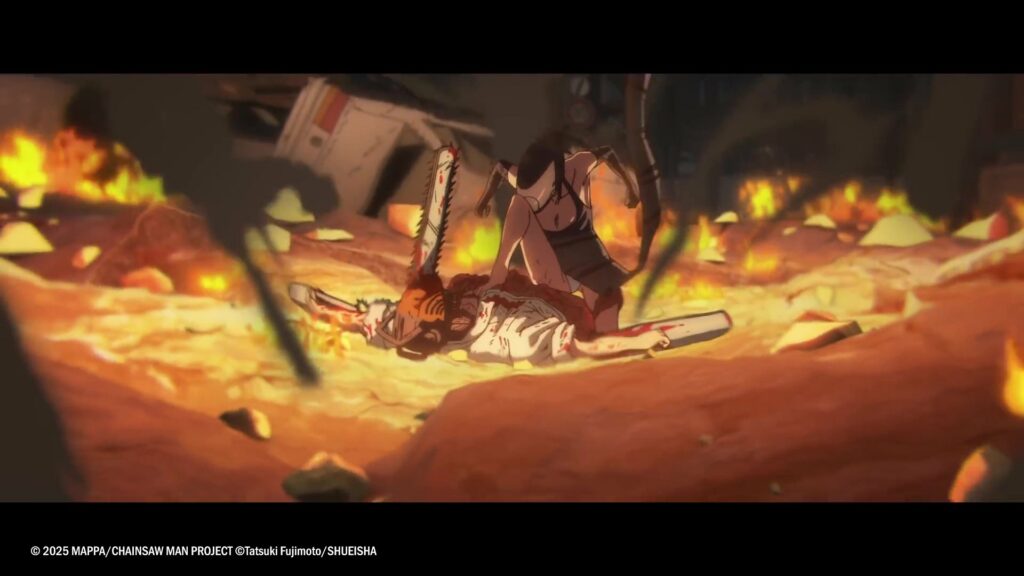
Where some anime films exist as side stories or glorified filler, Reze Arc feels like a watershed moment. It re-establishes Chainsaw Man’s emotional thesis with ferocity and grace, positioning the next chapter not merely as a continuation, but as a reckoning. There is a sense of becoming here: Denji is no longer just a vessel for spectacle — he is a boy learning what it costs to want more than survival.
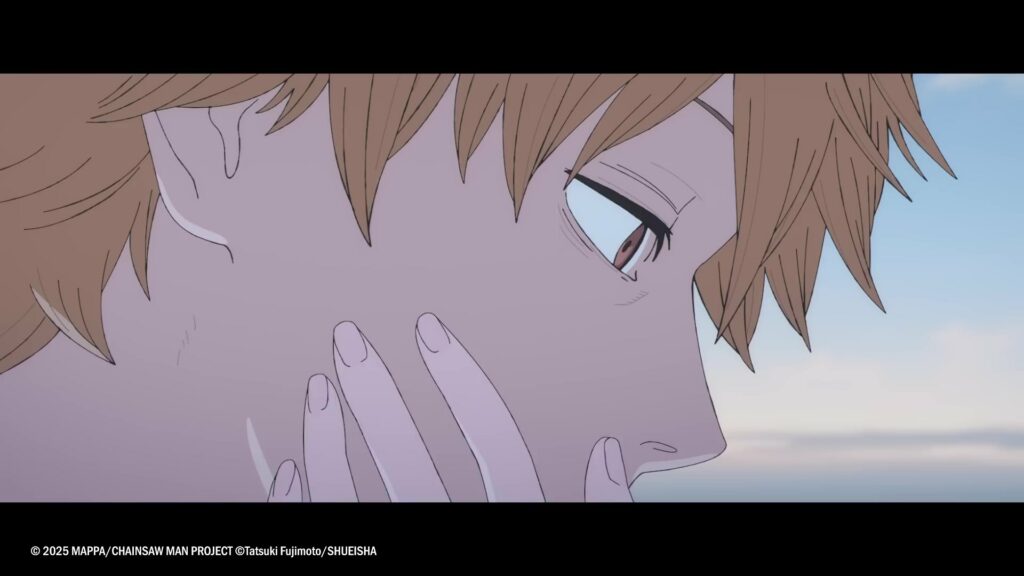
Chainsaw Man – The Reze Arc stops just shy of perfection, but what it accomplishes is enough to make the wait for Season 2 feel electrifying. It’s equal parts brutal action film, melancholic character study, and aching meditation on connection through chaos. This is Chainsaw Man at its fullest expression — stylish, unhinged, humorous, and quietly heartbreaking.
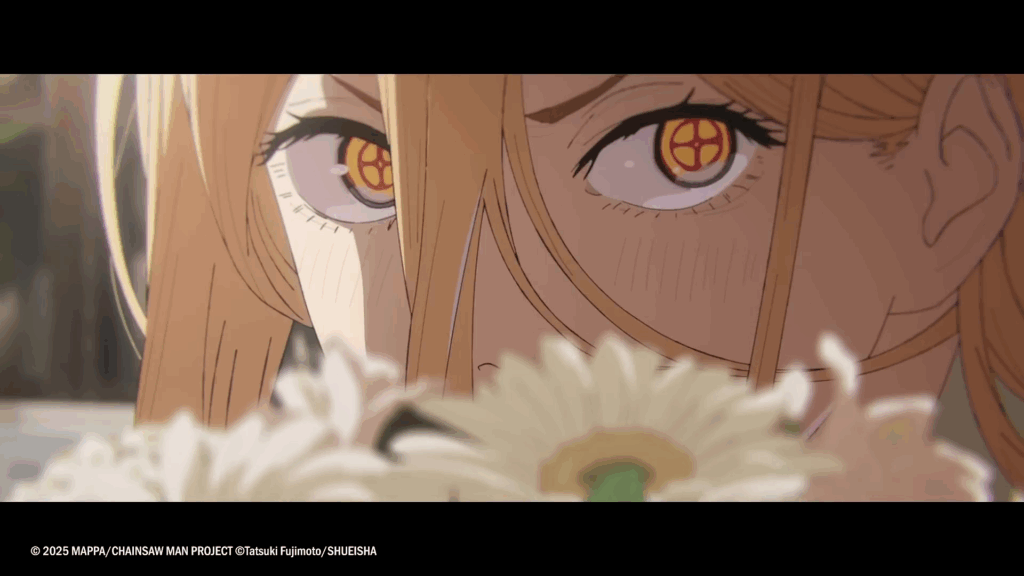
The film does what great anime cinema should: it expands the soul of its source material while preserving its teeth. It is a reminder that behind the roar of a motorized blade is a frightened, yearning human heart trying to figure out whether it is still allowed to be one.
© 2025 MAPPA/CHAINSAW MAN PROJECT ©Tatsuki Fujimoto/SHUEISHA
————
AnimeTV チェーン bringing you the latest anime news direct from Japan ~ anytime! — Your new source of information!

